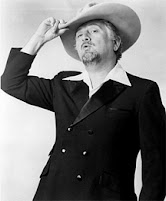TTAB Decides Ownership Dispute Over THE COWBOY ARMS HOTEL AND RECORDING SPA for Recording Studio Services
In an ownership dispute that "has the makings of a country song," the Board found that legendary country singer Cowboy Jack Clement and Opposer Clementvision, Inc., a company he formed, owned the mark THE COWBOY ARMS HOTEL AND RECORDING SPA for approximately 38 years before Cowboy Jack passed away in 2013. His children, Alison and Niles, inherited all of his assets, including Opposer. Applicant Robert Clement, second cousin of Cowboy Jack, bought the house in Nashville where Cowboy Jack's studio was located and began to use the mark there. He applied to register the mark for musical recordings and recording studio services. The Board found, however, that Applicant did not acquire rights in the mark, and further that Opposer had not abandoned the mark. Clementvision, Inc. v. Robert Clement, Opposition No. 91256127 (October 25, 2022) [not precedential] (Opinion by Judge Michael B. Adlin).
The Board found that "the evidence all points in one direction: Cowboy Jack bequeathed his music businesses, including Opposer (which owns the involved mark) to Alison and Niles. We presume this transfer to include all associated trademarks and service marks, and Applicant has not rebutted the presumption. Indeed, as explained above, Applicant’s theory that the involved mark was transferred to Ms. Miller and then to Applicant has no evidentiary support whatsoever."
There was no dispute that the public associated the mark with Cowboy Jack during his lifetime. There was no evidence that "in the year following Cowboy Jack’s death the public suddenly disassociated the mark from Cowboy Jack whose music continued to be popular, and in that short period of time somehow came to associate the mark with Ms. Miller or ZMG, or later Applicant." Moreover, there was evidence that despite Applicant using the mark for the recording studio, the public continued to associate the mark with Cowboy Jack and his services.
Finally, the public will look to Opposer, Cowboy Jack’s business now run by his children, to stand behind the quality of the services provided under the involved mark.
As to Applicant's abandonment defense, he failed to introduce evidence of nonuse and thus failed to meet his burden of proof. Opposer produced evidence of use of the mark: for example, "a primary aspect of Opposer’s business is to collect royalties on songs it owns or in which it has rights, and it has done so continuously since before Cowboy Jack’s death, including the periods before and after the 3405 Belmont property was sold." Moreover, even if there were a period of nonuse, Opposer had an intent to resume use. It found a new studio location and negotiated for a film about Cowboy Jack.
And so, the Board sustained the opposition.
Read comments and post your comment here.
TTABlogger comment: You might say that Applicant wore the black cowboy hat in this one.
Text Copyright John L. Welch 2022.


3 Comments:
any way to use SEC 2 (c) as this appears to be an attempt to misappropriate ( yes steal) the persona of another?
Bob Kelson - "Where the business goes, so shall the trademark go." A trademark without goodwill is like the emperor without clothes. The chain of title here was clear. A decision that is readily understood.
I think the interesting thing about this case is that it applies to the passage of a business (and its trademarks) to children in a personal will the rule that all marks are presumed to pass with the sale of a business. While the will omitted mention of the trademark, the mark passed as part of the inheritance. “We presume this transfer to [opposer] include all associated trademarks and service marks, and applicant has not rebutted the presumption.”
Post a Comment
<< Home